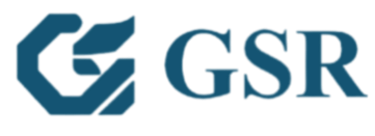Strategizing from 7 cities across the globe
A Way Out of Hell: Reconstructing Lebanon
Lebanon requires more than traditional solutions to not only recover but also rebuild with strength. Internationally compliant public administration alterations and financial stabilization are essential, as it will help regain public trust, international investment and ensure a somewhat stable future. In the aftermath of conflict, strategic reforms and selective initiatives will be very crucial in accomplishing financial stabilization in Lebanon, along with attracting global investment
MIDDLE EASTWARECONOMICSINVESTMENTTRADE
Nay Bardawil, Stephanie El Murr
11/11/20245 min read


The war with Israel will leave Lebanon with more than just visible scars. Beneath all the rubble lies a deeper problem – economic fragility and administrative incompetence that threaten any hope of long-term recovery. Lebanon requires more than traditional solutions to not only recover but also rebuild with strength. Internationally compliant public administration alterations and financial stabilization are essential, as those will help regain public trust, retrieve international investment, and ensure a somewhat stable future.
In the aftermath of conflict, strategic reforms and selective initiatives will be very crucial in achieving financial stability in Lebanon, along with attracting global investment.
The following measures are some of the many modern solutions to the Lebanese dilemma.
Firstly, increasing the VAT rate on luxury goods from the current 11% to 20% can be a great boost to government revenues without disproportionately affecting essential goods. It is, therefore, a measure targeting higher-income consumers and non-essential imports, aligning with recommendations that reduce trade gaps through increased taxation on luxury products. (UNESCWA, 2022)
Furthermore, the expansion of Lebanon’s VAT base through a broader coverage of goods and services, especially of digital and professional services, will greatly increase revenue. Bringing previously untaxed sectors into the formal economy will add to national revenue and entrench economic stability. In addition, implementing strong customs procedures and utilizing technology for more accurate VAT collection on imports is essential. This comes in the backdrop of new modifications to the customs dollar rate, now set at LL86,000, highlighting the importance of an effective tax collection mechanism that would adapt to the rapidly changing economic landscape in Lebanon. (Lorient Le Jour, 2023)
Moreover, conducting thorough audits of high-revenue sectors, such as real estate and tourism, can uncover tax evasion and ensure compliance. This approach follows proven methods used worldwide to improve tax systems. Setting up safe and confidential ways for people to report financial wrongdoing can also help reduce corruption and increase transparency. Whistleblowers, or people who report wrongdoing, illegal activities, and bad behaviors, play a crucial role in exposing misconduct, fraud, or ethical violations within organizations, often risking their careers to bring important issues to light and promote accountability Thus, providing them with legal protection and rewards for their transparency can incentivize more reporting of illegal activities. Additionally, encouraging the formal registration of small businesses and enterprises through incentives like tax breaks and simplified procedures can broaden the tax base. As per the International Labor Organization, there is an increasingly urgent need for formalization of the informal economy both for stability in economies and job security. (International Labor Organization, 2022)
Transition support initiatives are also important. Offering small loans, training, and support for basic needs helps small, informal businesses become official. This strengthens the economy and makes it more inclusive. The ILO's SOLIFEM project in Lebanon focuses on these efforts to create fair jobs and grow the economy. (SOLIFEM, 2022)
Furthermore, attracting international investment requires economic reforms and stability initiatives.
Transparent investment laws are essential for building investor confidence and inducing international investment. The World Bank reports that a transparent legal framework attracts foreign direct investment to post-conflict countries. (FDI)
Moreover, anti-corruption measures are necessary, and this implies that strict anti-corruption legislation should come into full force. Equally, transparent regulation must come into play. The World Bank report on the recent Lebanese economic crisis also echoed related governance reforms as key to regain stability in the economy. (AP News)
Cooperation with International Finance Institutions can also be beneficial. Engaging with institutions like the IMF and World Bank provides funding and expertise for rebuilding efforts. The IMF's current engagements with Lebanon underline the implementation of reforms, the stabilization of the economy, and the attraction of investment. In addition, regional development funds and bilateral aid can finance essential infrastructure projects and social programs that must be met right after the end of a conflict.
Finally, it’s essential that we try to revive tourism. Investment in infrastructure and tourism should be promoted in order to attract visitors to the country. The World Bank affirms that tourism forms one of the major elements in the process for our country's economic recovery.
Lebanon should also develop its technology sector through incentives for startups in investing in digital infrastructure, turning itself into a regional innovation hub, securing investment funding, and gradually creating jobs.
These could, therefore, be applied and implemented, after which the financial stabilization of Lebanon might become possible. This would lead Lebanon to become a very attractive destination for international investment and a center for sustainable economic growth and resilience.
Before any measures can be taken, it is important to understand that financial stabilization will not be achieved in isolation. The first step in addressing these issues is recognizing the significant challenges Lebanon faces. Our political landscape worsened with war, and the inefficient public administration and the unstable political system will surely drive international aid and investments away. The main objective now is to ensure that Lebanon's political and administrative structures can support solid economic policies while gaining the trust of both citizens and international partners.
Once these issues are identified, leaders and citizens should all work to push reforms forward. Placing political stability and administrative reforms at the forefront of Lebanon’s national agenda is essential for fostering an environment where financial recovery can succeed. Strategic policy development for stability could begin with the government taking the adequate measures, by learning from the past and acknowledging the gap in the implementation of the Taif Agreement. This accord, which originally laid the foundation for peace and power sharing in the country, turned to a partially implemented framework and a lesson to learn from. Revisiting and modernizing it is a must, as it should include new policies to ensure equitable distribution of power, and more importantly, legal consequences for actions that undermine the agreement. One way to ensure compliance is creating an implementation commission, made of representatives from all parties and international observers to mediate and oversee the progress (such as the UN, EU, OECD, OSCE…). This would also help Lebanon correspond with international expectations and construct a more stable environment that will lead to investment and growth.
The need to align Lebanon’s public administration with international standards is critical to ensure good governance. By implementing anti-corruption measures supported by the UNCAC (UN Convention Against Corruption) – which focuses on whistleblower protection and encourages transparency and open-budget policies – the practices will be in line with the global norms. The OECD and IMF both advocate for an open budget, this way the public will have access to financial reports. They also call for the digitization of public administration; in other words, tax collection, licensing and other public services found in one e-government platform. This worked well in numerous countries like Estonia, Canada and Singapore. The OECD highlights the importance of Private-Public Partnerships (PPPs), or the arrangements between the public and the private sector that will help with project funding, as the government won’t have the burden of relying on public funds. The UNECE provides a guide to good governance and framework that Lebanon can get inspired from when implementing PPPs. To add to that, the OECD fully supports and highlights the importance of PPPs in Lebanon, using standard frameworks to mitigate risk and attract private investment.
By implementing the reforms ranging from digitization to anti-corruption and the use of PPPs, Lebanon will be well positioned to gain the trust of international investors, attracting financial aid and, thus, a more stable economy. In the process, it would finally gain regional and national trust.
References
United Nations Economic and Social Commission for Western Asia. Lebanon Trade Policy: A New Development Era. UNESCWA, https://www.unescwa.org/sites/default/files/pubs/pdf/lebanon-trade-policy-new-development-era-english.pdf
L’Orient Today. “Finance Ministry Raises Customs Dollar to LL86,000.” L'Orient Today, https://today.lorientlejour.com/article/1337324/finance-ministry-raises-customs-dollar-to-ll86000.html.
International Labour Organization. “New ILO Project Works towards Formalizing Lebanon's Economy.” International Labour Organization, https://www.ilo.org/resource/news/new-ilo-project-works-towards-formalizing-lebanons-economy-through.
International Labour Organization. Solidarity and Inclusive Growth for Employment in Lebanon and Jordan. ILO, https://solifem.ilo.org/en/.
United Nations Economic Commission for Europe. Guidebook on Promoting Good Governance in Public-Private Partnerships (PPPs). UNECE, https://unece.org/fileadmin/DAM/ceci/publications/ppp.pdf.
International Monetary Fund. “Lebanon: IMF Staff Concludes Visit to Lebanon.” International Monetary Fund, May 2024, https://www.imf.org/en/News/Articles/2024/05/22/pr24173-lebanon-imf-staff-concludes-visit.
Organisation for Economic Co-operation and Development. Public-Private Partnerships: In Pursuit of Risk Sharing and Value for Money. OECD Publishing, 2008.
